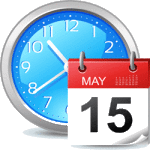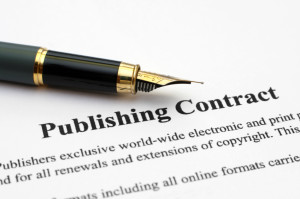John Wilsey teaches history and philosophy at Southwestern Baptist Theological Seminary. He is the author of [amazon_link id="1608997928" target="_blank" container="" container_class="" ]One Nation Under God: An Evangelical Critique of Christian America[/amazon_link] and blogs at johndwilsey.com.
 “How can I get my ideas published in book form?”
“How can I get my ideas published in book form?”
This burning question can sometimes animate a young scholar’s mind, body, and soul for months, sometimes years.
For most new Ph.D.s, the dissertation represents the deepest and widest river of writing and scholarship they have ever crossed.
Therefore, the question of how a new Ph.D. can get their dissertation published is not only natural, it is expected.
In my experience, personal and professional connections go a long way toward getting your revised dissertation published.
Questions to Ask Before You Network
Just as significant to these connections are the questions that young scholars should ask themselves:
- Whom do I know?
- Do people respect my work?
- Do others like me on a personal level?
- Am I willing to ask my connections for help?
- How willing am I to market myself to people who do not know me?
- Am I willing to adapt my work, within sensible limits, to see it published?
Think first about the obvious question—to whom are you willing to entrust your intellectual baby?
A university press might be the natural choice for your work.
Perhaps a trade press is the best fit.
Only you can decide whom you are willing to entrust with your intellectual property and regardless of the choice you make, it will be important for you to establish a personal connection with potential publishers.
 How Do I Establish Personal Connections?
How Do I Establish Personal Connections?
Attend academic conferences and present conference papers.
If you are not in the practice of at least attending one conference in your field, I have simple advice: Start.
Meet Scholars
Conferences are the best way to meet fellow scholars who work in your field.
You need to build relationships with your colleagues, even those with whom you disagree.
Presenting a conference paper allows you to formally introduce yourself and your research to other scholars.
Meet Publishers
Use the conference website or program to find out which publishers will be present at the book tables.
Look upon most these presses as potential publishers of your work.
Don’t Discount Small Publishers
Don’t be proud or closed-minded. Many small imprints are growing in size and sophistication.
For some, small imprints may be your only option.
Many scholars dismiss small imprints usually because they think their work is too good for them.
Remember: pride goeth before destruction—and obscurity.
 Make Appointments with Acquisitions Editors
Make Appointments with Acquisitions Editors
Make appointments with acquisitions editors two weeks or so ahead of the conference.
Search for the names and e-mail addresses of editors on press websites.
If possible, e-mail editors directly.
Request an appointment in a concise letter that explains your thesis in one sentence.
You might also attach your book proposal and a copy of your CV so the editor can see what you are offering.
You might have to send a letter as a general inquiry.
No problem. Just do it. The worst that happens is you get no response.
Be sure to bring a hard copy of your book proposal, your sample chapter, and CV when you meet for your appointment.
If possible, make appointments with as many of the editors as possible.
The more editors you meet, the more likely one of them will be interested in your work.
Set Realistic Expectations for Meetings
Keep your expectations realistic.
Few will offer you a contract on your first meeting, but the first meeting will establish a first impression, which is the most important one.
The best you can expect is to meet an editor (or two, or three perhaps) who is genuinely interested in your work and willing to start the process of formal consideration by taking your proposal to a committee.
The least you can expect is everyone rejects your work.
If this happens, keep a positive attitude. You will have gained valuable experience by establishing contacts and founding relationships among editors, which is pure gold.
 Keep a Positive Attitude
Keep a Positive Attitude
Editorial contacts have enormous potential, and if you are winsome, respectful, and willing to reasonably adjust your work to meet an editor’s standards, there is hope.
An editor who rejects your work may forward your proposal to another editor, just because she liked you.
Attitude is everything.
Go into every meeting convinced that someone will publish your work; maybe not the publisher you meet with, but someone.
Confidence—with humility, and a willingness to listen—go a long way.
 What Do You Think?
What Do You Think?
How did you find your publisher?
Interested in Sharing Your Wisdom on Uncommonplace Book? Email your post ideas to lizcovart[AT]mac[DOT]com.
